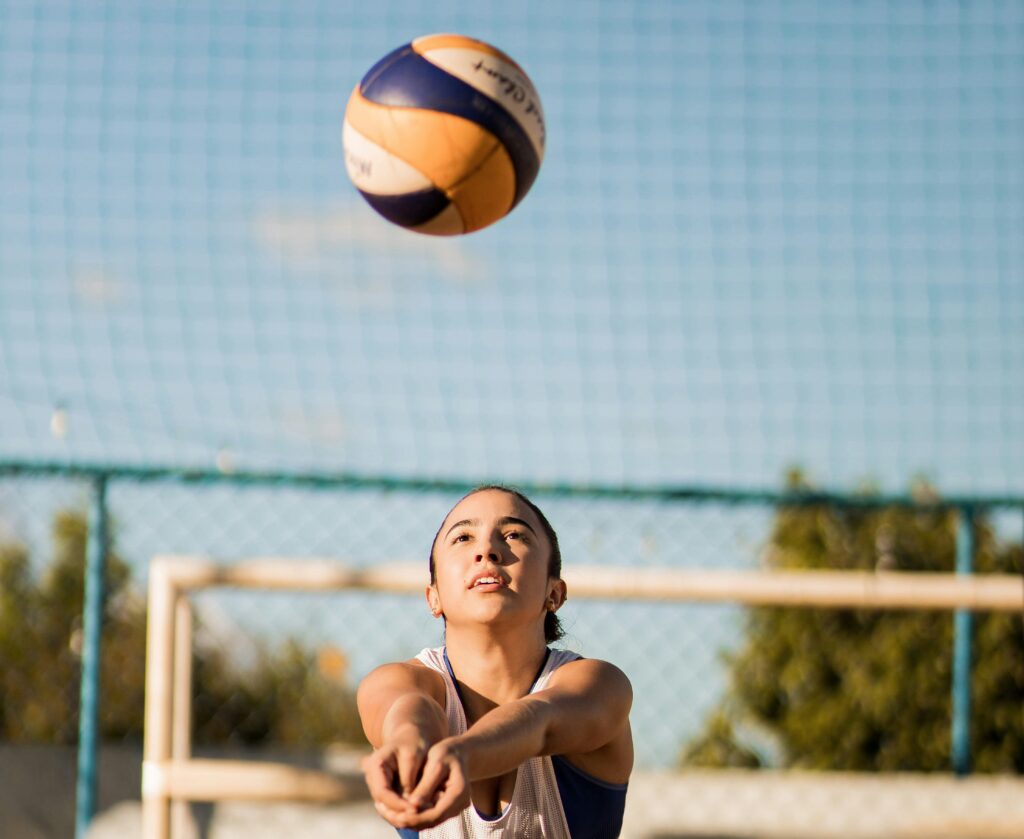Supporting Girls Through Puberty in Sport
Puberty is a time of rapid change, and for young female athletes, those changes can impact performance, health, and confidence. Here’s what parents and coaches should know:
Performance Fluctuations Are Normal
If your daughter suddenly seems less coordinated or slower, it’s not a setback—it’s biology. As her body grows, she has to re-learn movement patterns. With patience and encouragement, she’ll adjust and come back stronger.
Higher Risk of Knee Injuries
During puberty, girls are more prone to ACL tears. This isn’t carelessness—it’s physiology. Training that focuses on strength, landing mechanics, and safe cutting techniques can significantly reduce injury risk.
Sleep Shifts with Hormones
Teen sleep cycles naturally shift later, but early school mornings and busy schedules often cut rest short. Even if she’s in bed, sleep quality may not be great. Fatigue, mood swings, and focus issues are often tied to this change.
The Case for Multi-Sport Play
Early specialization in a single sport can lead to burnout and overuse injuries. Exposure to multiple sports builds coordination, resilience, and confidence while keeping participation fun.
Nutrition Fuels Growth and Performance
A growing body needs more energy than you might think. Three meals a day often aren’t enough for active teens. Strategic eating before and after training supports bone health, hormonal balance, and recovery.
Girls Recover Differently Than Boys
Girls often have better endurance capacity compared to boys their age, thanks to differences in muscle fibre type. Smart training plans that consider this can help them recover more effectively.
Growing Bones Need Protection
Rapid growth can leave bones vulnerable, making stress fractures more common. Balanced training, rest, and nutrient-rich foods are critical for keeping bones strong.
Periods Are Part of the Process
Irregular cycles in the first couple of years are normal. Helping your daughter track her cycle (without judgment) can build body awareness and confidence.
Be Thoughtful About Birth Control Pills
The pill is sometimes prescribed to “regulate” cycles, but that bleeding isn’t a true period. Unless contraception or medical treatment is needed, allowing the body to establish its natural rhythm is often best.
Whole Foods Outperform Processed Substitutes
Heavily processed “health foods” can disrupt gut health, hormones, and immunity. A whole-food, balanced diet is the best foundation for long-term well-being and athletic success.
The big takeaway: Puberty is a normal, sometimes bumpy transition. With the right mix of nutrition, rest, training, and support, girls can thrive in sport and carry those lessons into life.
Adapted from insights by Dr. Stacy Sims

